The
Homing
Place

INDIGENOUS STUDIES SERIES
THE INDIGENOUS STUDIES SERIES builds on the successes of the past and is inspired by recent critical conversations about Indigenous epistemological frameworks. Recognizing the need to encourage burgeoning scholarship, the series welcomes manuscripts drawing upon Indigenous intellectual traditions and philosophies, particularly in discussions situated within the Humanities.
Series Editor
Dr. Deanna Reder (Cree-Metis),
Associate Professor, First Nations Studies and English,
Simon Fraser University
Advisory Board
Dr. Jo-ann Archibald (Sto:l),
Professor of Educational Studies, Faculty of Education,
University of British Columbia
Dr. Kristina Bidwell (NunatuKavut),
Associate Dean of Aboriginal Affairs, College of Arts and Science,
Professor of English, University of Saskatchewan
Dr. Daniel Heath Justice (Cherokee Nation),
Professor, First Nations and Indigenous Studies/English,
Canada Research Chair in Indigenous Literature and Expressive Culture,
University of British Columbia
Dr. Eldon Yellowhorn (Piikani),
Associate Professor, Archaeology, Director of First Nations Studies,
Simon Fraser University
RACHEL BRYANT
The
Homing
Place
Indigenous and Settler
Literary Legacies
of the Atlantic


This book has been published with the help of a grant from the Canadian Federation for the Humanities and Social Sciences, through the Awards to Scholarly Publications Program, using funds provided by the Social Sciences and Humanities Research Council of Canada. Wilfrid Laurier University Press acknowledges the support of the Canada Council for the Arts for our publishing program. We acknowledge the financial support of the Government of Canada through the Canada Book Fund for its publishing activities. This work was supported by the Research Support Fund.

Library and Archives Canada Cataloguing in Publication
Bryant, Rachel, 1983, author
The homing place : indigenous and settler literary legacies of the Atlantic / Rachel Bryant.
(Indigenous studies series)
Includes bibliographical references and index.
Issued in print and electronic formats.
ISBN 978-1-77112-286-3 (hardcover).ISBN 978-1-77112-288-7 (PDF).
ISBN 978-1-77112-289-4 (EPUB)
1. Canadian literatureHistory and criticism. 2. Canadian literatureIndian authorsHistory and criticism. 3. Pioneers in literature. 4. Colonization in literature. 5. Indians in literature. I. Title. II. Series: Indigenous studies series
PS8061.B79 2017 C810.9 C2017-901908-2
C2017-901909-0
Cover photo by Rachel Bryant. Cover image shows a detail of an address to Murray MacLaren, written on birchbark in English and Maliseet, Kingsclear First Nation, Pilick, 1939. Courtesy the New Brunswick Museum Muse du Nouveau-Brunswick, www.nbm-mnb.ca / S 44A6.S. The exhibit as a whole appears in this volume as Figure 4 (page 13). Cover and text design by Lime Design Inc.
2017 Wilfrid Laurier University Press
Waterloo, Ontario, Canada
www.wlupress.wlu.ca
Mihku Paul, Echo of Multitudes, 20th Century PowWow Playland (Bowman Books, 2012). Printed with permission from the author.  Cheryl Savageau, Harsh Words, Dirt Road Home (Curbstone Press, 1995). Printed with permission of Northwestern University Press and the author. Copyright 1995 by Cheryl Savageau. All Rights Reserved. Published by Curbstone Press.
Cheryl Savageau, Harsh Words, Dirt Road Home (Curbstone Press, 1995). Printed with permission of Northwestern University Press and the author. Copyright 1995 by Cheryl Savageau. All Rights Reserved. Published by Curbstone Press.  Josephine Bacon, excerpts from the poetry collection Message Sticks (Tshissinuatshitakana) (Mawenzi House Publishers, 2013). Printed with permission from Mawenzi House.
Josephine Bacon, excerpts from the poetry collection Message Sticks (Tshissinuatshitakana) (Mawenzi House Publishers, 2013). Printed with permission from Mawenzi House.
This book is printed on FSC certified paper and is certified Ecologo. It contains post-consumer fibre, is processed chlorine free, and is manufactured using biogas energy.
Printed in Canada
Every reasonable effort has been made to acquire permission for copyright material used in this text, and to acknowledge all such indebtedness accurately. Any errors and omissions called to the publishers attention will be corrected in future printings.
No part of this publication may be reproduced, stored in a retrieval system, or transmitted, in any form or by any means, without the prior written consent of the publisher or a licence from the Canadian Copyright Licensing Agency (Access Copyright). For an Access Copyright licence, visit http://www.accesscopyright.ca or call toll free to 1-800-893-5777.
 For my grandmothers
For my grandmothers 
Lillie-Mae Corey,
Pearl Steeves,
and Ruth Colley
Contents
List of Figures
/ Thank-you address written on birchbark in English and Maliseet
/ Newfoundland to Boston integrated rail line
Preface
Engaging in Literary Diplomacy, or Speaking from a Clear Subject Position
I AM A SETTLER CANADIAN ANGLOPHONE WOMAN who was born in what my family calls Fredericton, New Brunswick, a city on the Wolastoq River, which flows through the heart of unceded Wolastoqiyik (Maliseet) territory. Thanks in part to extensive genealogical work done by my grandmother, the late Lillie-Mae Corey, I can trace my North American roots to the Anglo-Protestant people of what my maternal ancestors called Plymouth Colony and the Mayflower, and on my fathers side, to a German shoemaker in what some now call Philadelphia. My mothers ancestors came to what is now eastern Canada following the Paris Treaty of 1783. My fathers ancestorsone of eight families known today in southeastern New Brunswick as the Permanent Settlerscame in 1766, attracted by the large tracts of land that were being offered for development by a company owned and administered by Benjamin Franklin. 
Acknowledgements
MANY PEOPLE DESERVE RECOGNITION for the encouragement and insight they lent to this project at various times over the last six years. By introducing me to early American and Indigenous literatures, Drew Lopenzina put me on this path, fundamentally changing the way I think about Canada, Atlantic Canada, and the northeast. April Shemak supported me through my own messy experience of cartographic dissonance, which played out in what was otherwise perhaps the most unsuitable environment possible: the small east-Texas prison town of Huntsville.
Jennifer Andrews humoured and supported me from the beginning of our relationship, encouraging me to pursue my interests with impunity while simultaneously (and sagely) advising me to use fewer soil metaphors in my grant proposals. Thank you, Jen, for always looking out for me and for showing me that it is possible to balance this kind of all-consuming work with a robust family life. Elizabeth Mancke has made innumerable contributions to everything I have published since meeting her; without our weekly coffee dates at the library, this book would not be near finished. Elizabeth, thank you for showing me how to map ideas out loud and on paper. Your brilliance, kindness, and generosity make the scholars around you immeasurably better, and I aspire to someday mentor and support others in a similar way.
Next page

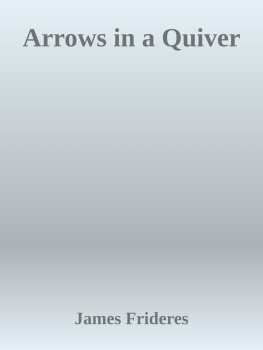
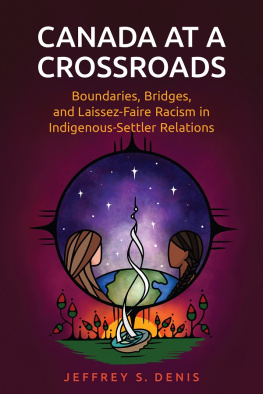
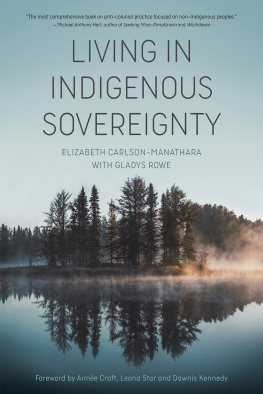
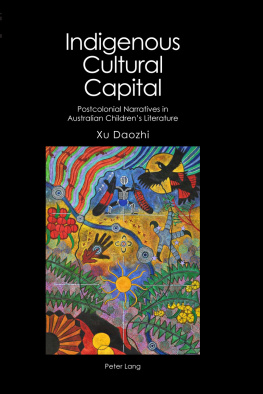
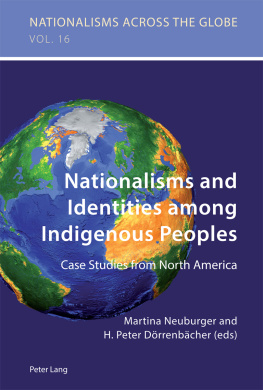
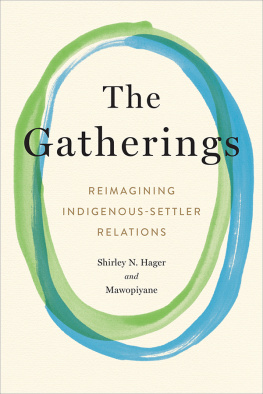
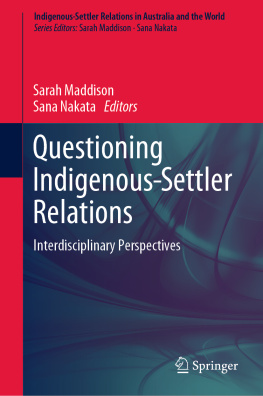
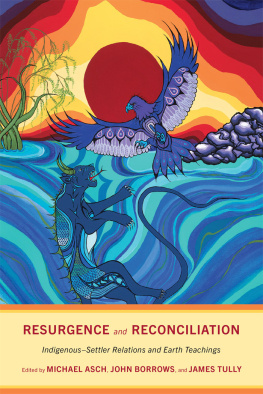




 Cheryl Savageau, Harsh Words, Dirt Road Home (Curbstone Press, 1995). Printed with permission of Northwestern University Press and the author. Copyright 1995 by Cheryl Savageau. All Rights Reserved. Published by Curbstone Press.
Cheryl Savageau, Harsh Words, Dirt Road Home (Curbstone Press, 1995). Printed with permission of Northwestern University Press and the author. Copyright 1995 by Cheryl Savageau. All Rights Reserved. Published by Curbstone Press.  For my grandmothers
For my grandmothers 
